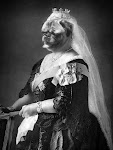Berlioz's Massive opera about the free spirited Italian sculptor is rarely performed or recorded, but the overture remains one of his more popular pieces. Unfortunately, this performance seemed a bit flat and lacking drama despite some fine ensemble playing and well paced tempo. The grand coda, Popes and pomp and all, seemed forced rather than grandly conclusive.
All came together much better in the sometimes delicate, often jazzy and frequently lushly beautiful Ravel. Fliter, a pianist not familiar to me, easily handled the extremes of the score; sweetly lyrical, technically brilliant and jazzy when called upon. The delicate, flowing central Adagio was most effective. Fliter's refined technique and Rachleff's nuanced accompaniment allowed us to hear each note of the many long lines and florid runs, revealing that Ravel would often place a few staccato notes in between long legato phases, something not always noted in less graceful performances. A disappointment was the grand bluesy outburst in the first movement that just wasn't perfectly cataclysmic and laced with flutter tonguing brass as in the best performances of this work. Special note to the fine clarinets and trombones who often had some of the more jazzy elements and to Kenneth Lawrence for his achingly beautiful English horn solo in the adagio.
The second half opened with the strings in the well known Barber Adagio for Strings arranged from his String Quartet op 11. If any work from a US composer has become a cultural icon, this one is it. Premiered by Toscanini, championed by Stokowski. praised by Sibelius and soon to become the music that told a nation that Roosevelt had died, the Barber Adagio is certainly an institution. Rachleff and the KC Strings gave a fine and heartfelt performance of this emotional piece, marred only by some questionable intonation in the high tessatura of the climax.
Rachleff apparently loves the popular Elgar Variations as he mentioned in his short talk and by noting that it is one of the most frequently performed pieces in the classical repertoire. Rachleff guided the orchestra through the characteristic variations portraying the pugnacious Dan the Bulldog, the stuttering Dorabella, the moody R.P.A. and the loyal and noble "Nimrod". Easily the best performance of the night, the orchestra seemed to relish Elgar's enigmatic work and, along with the committed direction of Rachleff, provided a more than satisfying conclusion to the evening.



No comments:
Post a Comment